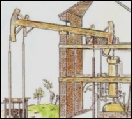



|
1702 |
The War of the Spanish Succession gets under way with a Grand Alliance of European states, formed to oppose the union of the French and Spanish crowns.
In the Great Northern War Charles XII of Sweden, having invaded Poland,
sets out to tighten his grip on the country prior to his all-
The Camisards, Protestant rebels in the south of France, begin a general revolt against religious persecution. The uprising is brutally suppressed, but takes four years to crush.
|
|
1703 |
The Methuen Treaty is signed between England and Portugal concerning trade in wine and woollens. In addition Portugal agrees to supply 28,000 troops for the war against France.
A national rising against Habsburg rule breaks out in Hungary, led by Ferenc Rakoczi II. The Austrians keep control but a compromise settlement is reached eight years later.
The Chinese artist Wu Li paints The Old Snow Man on Huang Shan, a traditional work of the Ch’ing Dynasty. He is one of a group of outstanding Chinese artists at this time.
Work begins on the building of St. Petersburg on the River Neva, at the eastern end of the Gulf of Finland. Ten years later Tsar Peter the Great makes this city his capital.
|
|
1704
1705 |
A fleet under the command of Admiral Sir George Rooke seizes Gibraltar from Spain. Its capture, confirmed by treaty in 1713, marks the start of Britain as a Mediterranean power.
In Bavaria, the combined forces of Prince
Eugene of Savoy and the Duke
of Marlborough defeat a French-
The English astronomer Edmund Halley correctly predicts the return in 1758 of the comet which last appeared in 1682. Not surprisingly, the comet was named in his honour.
The English dramatist and architect John Vanbrugh is commissioned to build Blenheim Palace for the Duke of Marlborough. As a playwright he wrote a number of society plays.
In Tunisia, a Turkish officer named Husayn Ibn Ali virtually throws off Ottoman control. Five years later he founds the Husaynid dynasty, a line of rulers which survives until 1957.
|
|
1706 |
In the Netherlands the Duke of Marlborough defeats the French at the Battle of Ramillies whilst in Italy Prince Eugene of Savoy wins a victory over the French at the Battle of Turin. |
|
1707 |
Thexgreat Mughal
leader Aurangzeb dies,
and his empire -
The English nonconformist minister Isaac Watts produces his first collection of hymns. He wrote over 600 hymns, including O God Our Help in Ages Past and Jesus Shall Reign.
|
|
1708 |
Following the death of the deposed King James II, his son James Edward (the Old Pretender) leads a French invasion force to Scotland, but is driven away without landing.
The eminent Dutch physician Hermann Boerhaave publishes his Medical Principles. A professor at Leiden University, he gains renown for his reintroduction of bedside teaching.
|
|
1709 |
The French are again defeated by the Duke of Marlborough and Eugene of Savoy at the Battle of Malplaquet, the last major battle of the War of the Spanish Succession.
In England, the ironmaster Abraham Darby produces
a coke-
The English essayist Richard Steele produces the periodical The Tatler. Two years later, he and his co-
The Italian Bartolommeo Cristofori makes the first piano. It is based on the harpsichord, but the use of hammers to strike the keys makes it possible to vary the volume of the sound.
|
|
1710 |
In Germany, the Chinese formula for making
hard-
The Irish philosopher George Berkeley publishes The Principles of Human Knowledge in which he sets out his version of empiricism. He wrote many works on a variety of subjects.
|
|
1711
1712 |
Charles VI of Austria becomes Holy Roman Emperor. As a result, the Grand Alliance no longer supports his claim to the Spanish throne. Negotiations begin to end the war.
The English engineer Thomas Newcomen builds the first practical steam engine. Made to pump water out of mines, it is used widely throughout the country. This invention opens up the age of steam and modern engineering.
The English poet Alexander Pope gains fame with his mock heroic poem The Rape of the Lock. Among his many satirical works, The Dunciad of 1728 (G2) is one of his best known. |
|
1713 |
The Treaty of Utrecht ends the War of the Spanish Succession. By it, French power is checked, Spain renounces the French throne, and Britain emerges as a major power.
The Asiento de Negros is signed, a contract which grants Britain the exclusive right to transport 144,000 black slaves to Spain's American colonies over the next 30 years.
|
|
1714 |
Queen Anne, failing in health over a number years, suddenly dies in London. By the terms of the Act of Settlement of 1701, she is succeeded by her Hanovarian cousin, as George I
|
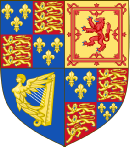






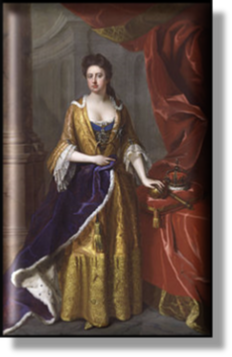 xxxxx
xxxxx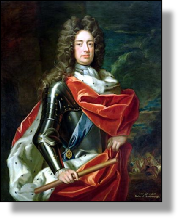 Malplaquet -
Malplaquet -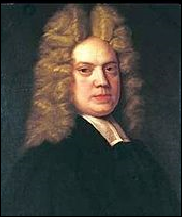
 was
among the first to improve the quality of English racehorses by
importing Barb and Arab sires. His famous stallion, Godolphin Barb,
was owned by his son, the second earl of Godolphin. Newmarket was
the favourite venue for horseracing at this time (established in
1634 by Charles I), but it was during this reign, in 1711, that
Queen Anne opened the course on Ascot Heath, now well known for the
Royal Ascot meeting in June and its principal race, the Ascot Gold
Cup.
was
among the first to improve the quality of English racehorses by
importing Barb and Arab sires. His famous stallion, Godolphin Barb,
was owned by his son, the second earl of Godolphin. Newmarket was
the favourite venue for horseracing at this time (established in
1634 by Charles I), but it was during this reign, in 1711, that
Queen Anne opened the course on Ascot Heath, now well known for the
Royal Ascot meeting in June and its principal race, the Ascot Gold
Cup.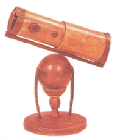 The
English scientist
The
English scientist  The
The
 At
the
At
the 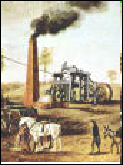 In
the Great Northern War, the Swedish army is defeated by the
Russians at the
In
the Great Northern War, the Swedish army is defeated by the
Russians at the 